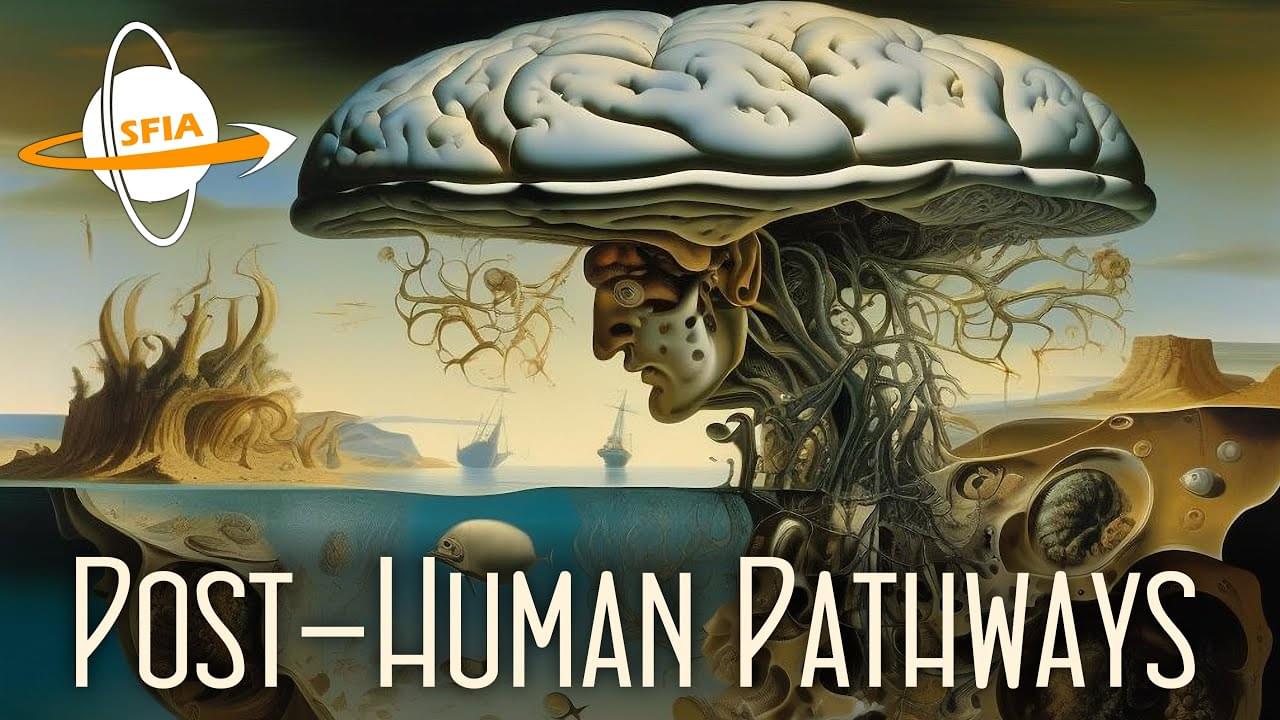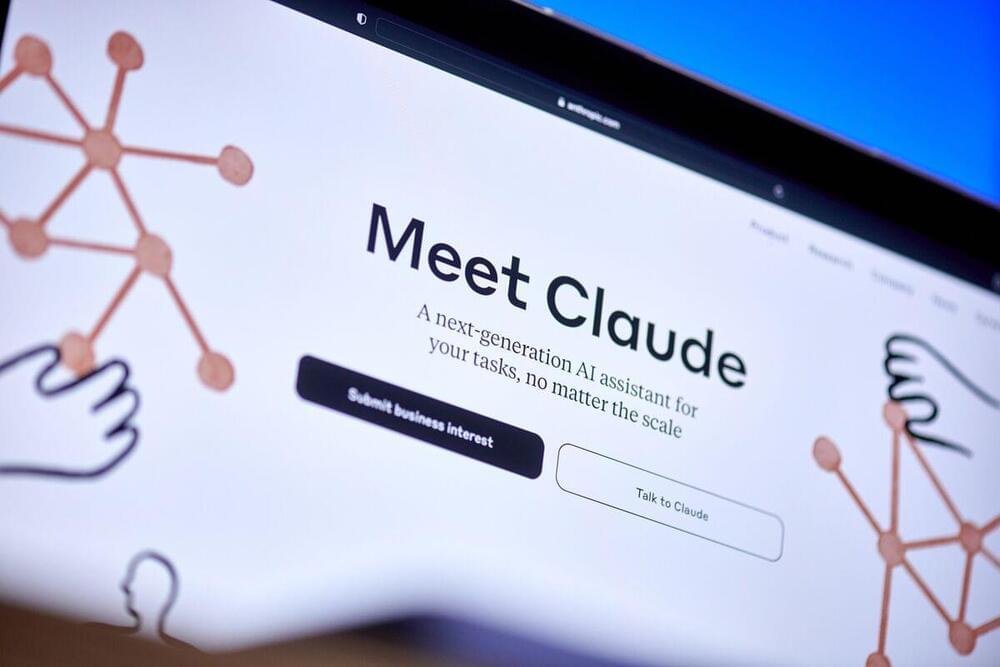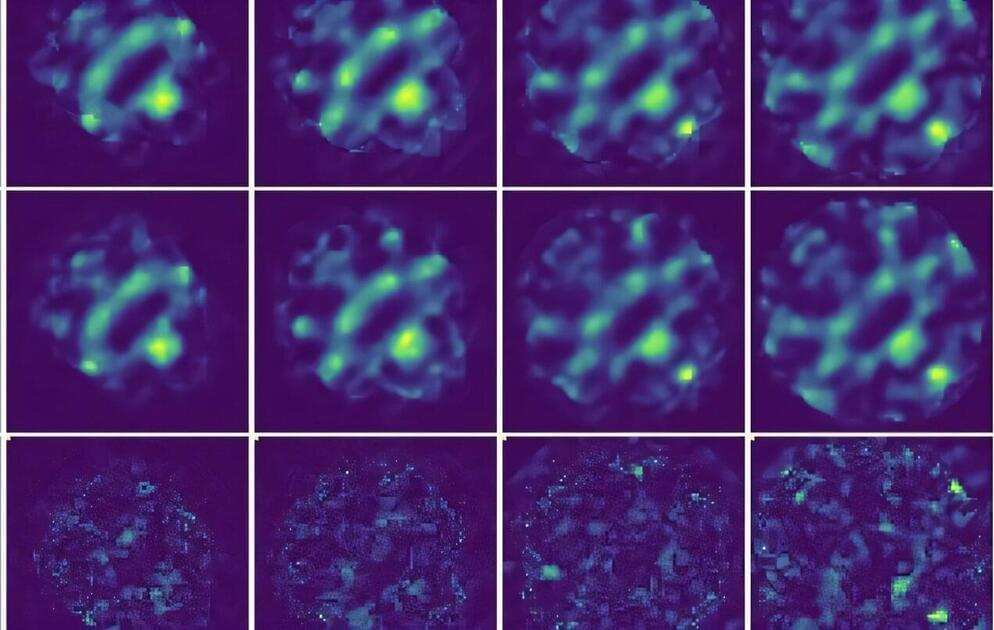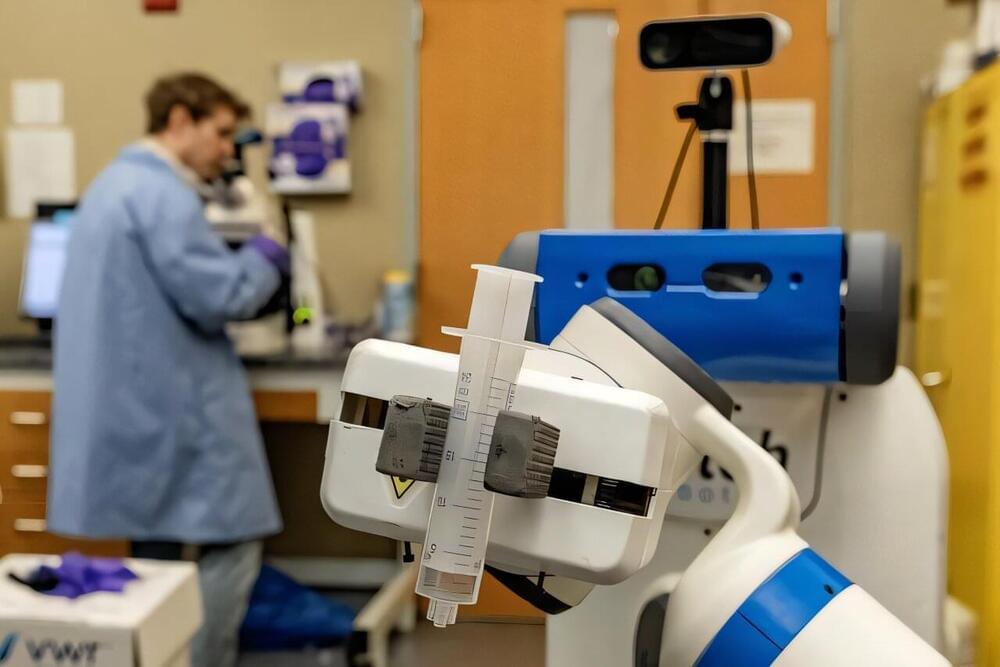Archive for the ‘robotics/AI’ category: Page 70
Oct 24, 2024
Scientists develop grain-sized soft robots controlled by magnetic fields for targeted drug delivery
Posted by Cecile G. Tamura in categories: biotech/medical, robotics/AI

Imagine a tiny, soft robot that could change the way medicine is delivered to targeted areas in the body.
A team of scientists at NTU has developed grain-sized soft robots that can be controlled using magnetic fields for targeted drug delivery, paving the way to possible improved therapies in future.
Oct 24, 2024
Human “Mini Brains” Wirelessly Control Butterflies In Virtual World
Posted by Genevieve Klien in categories: biotech/medical, robotics/AI
Virtual worlds, ChatGPT, and AI seem to be all the rage in 2024, with all sorts of developments shaking up not just the technology space, but having wider implications for medicine, politics, and even the judicial system. Now, researchers from Swiss startup FinalSpark have combined a virtual world with tiny human mini brains and built a two-way con…
Oct 24, 2024
Robot & Technology Exhibitions | GITEX 2024 in Dubai | IROS 2024 in Abu Dhabi | Pro robots
Posted by Shailesh Prasad in categories: drones, food, robotics/AI, sustainability

1GITEX Global 2024 and IROS 2024 became true gateways to the future of technology, bringing together the most advanced innovations in artificial intelligence, robotics, and transportation under one roof. At the forefront of GITEX was the unique Nissan Hyperforce concept, an electric vehicle with an incredible 1,360 horsepower, capable of accelerating from 0 to 100 km/h in just 2 seconds. This electric supercar not only stunned with its speed but also with its futuristic design, reminiscent of the iconic Batmobile. With its advanced driving modes, R and GT, drivers can switch between a sporty and comfortable driving experience.
👉For business inquiries: [email protected].
✅ Instagram: / pro_robots.
Oct 24, 2024
Posthuman Pathways: Strange And Awesome Destinations On Humanity’s Future Journeys
Posted by Shailesh Prasad in categories: media & arts, robotics/AI, space

Soon humanity may reach out to the galaxy and spread ourselves to every world in it, but in the billions and billions of years to come on those billions and billions of worlds, humanity shall surely diverge down many roads and posthuman pathways.
Watch my exclusive video Caretaker AI \& Genus Loci: https://nebula.tv/videos/isaacarthur–… Get Nebula using my link for 40% off an annual subscription: https://go.nebula.tv/isaacarthur.
Get a Lifetime Membership to Nebula for only $300: https://go.nebula.tv/lifetime?ref=isa… Use the link gift.nebula.tv/isaacarthur to give a year of Nebula to a friend for just $30.
Oct 24, 2024
OpenAI’s AGI Czar Quits, Saying the Company Isn’t ready For What It’s Building
Posted by Kelvin Dafiaghor in category: robotics/AI
OpenAI’s researcher in charge of making sure the company (and the world) is prepared for the advent of artificial general intelligence (AGI) has resigned — and is warning that nobody is ready for what’s coming next.
In a post on his personal Substack, the firm’s newly-resigned AGI readiness czar Miles Brundage said quitting his “dream job” after six years has been difficult. He says he’s doing so because he feels a great responsibility regarding the purportedly human-level artificial intelligence he believes OpenAI is ushering into existence.
“I decided,” Brundage wrote, “that I want to impact and influence AI’s development from outside the industry rather than inside.”
Oct 24, 2024
AI needs decade+ to reach human-like smarts, says pioneer
Posted by Rx Sobolewski in category: robotics/AI
The Turing Award recipient told ET that the path to achieving AGI (artificial general intelligence) is through AI systems being conscious of the physical world, having persistent memory and being able to reason. This may take 6–10 years and still have the intelligence of a cat, he said on the sidelines of Meta’s Build with AI Summit in Bengaluru.
“I don’t like the phrase AGI. I prefer human-level intelligence because human intelligence is not general. Internally, we call this AMI-advanced machine intelligence. We have a pretty good plan on how to get there,” said LeCun is often referred to as a ‘Godfather of AI’
Oct 24, 2024
AI helps humans have a 20-minute ‘conversation’ with a humpback whale named Twain
Posted by Genevieve Klien in categories: alien life, robotics/AI
In a remarkable encounter off the coast of Alaska, human scientists had what they describe as a “conversation” with a humpback whale named Twain. Dr. Brenda McCowan from the University of California Davis was at the heart of this unexpected exchange.
Dr. McCowan and her team, known as Whale-SETI, have been studying how humpback whales communicate. They’re aiming to understand whale communication systems to help in the search for life beyond Earth.
Using an underwater speaker, the team played a recorded humpback “contact” call into the ocean. To their astonishment, Twain approached their boat and began responding.
Oct 24, 2024
AI model improves 4D STEM imaging for delicate materials
Posted by Saúl Morales Rodriguéz in categories: robotics/AI, solar power, sustainability
Researchers at Monash University have developed an artificial intelligence (AI) model that significantly improves the accuracy of four-dimensional scanning transmission electron microscopy (4D STEM) images.
Called unsupervised deep denoising, this model could be a game-changer for studying materials that are easily damaged during imaging, like those used in batteries and solar cells.
The research from Monash University’s School of Physics and Astronomy, and the Monash Center of Electron Microscopy, presents a novel machine learning method for denoising large electron microscopy datasets. The study was published in npj Computational Materials.
Oct 24, 2024
Study: Robotic automation, AI will speed up scientific progress in science laboratories
Posted by Dan Kummer in categories: chemistry, health, robotics/AI, science
Science laboratories across disciplines—chemistry, biochemistry and materials science—are on the verge of a sweeping transformation as robotic automation and AI lead to faster and more precise experiments that unlock breakthroughs in fields like health, energy and electronics.
This is according to UNC-Chapel Hill researchers in a paper titled “Transforming Science Labs into Automated Factories of Discovery,” published in Science Robotics.
“Today, the development of new molecules, materials and chemical systems requires intensive human effort,” said Dr. Ron Alterovitz, senior author of the paper and Lawrence Grossberg Distinguished Professor in the Department of Computer Science. “Scientists must design experiments, synthesize materials, analyze results and repeat the process until desired properties are achieved.”














